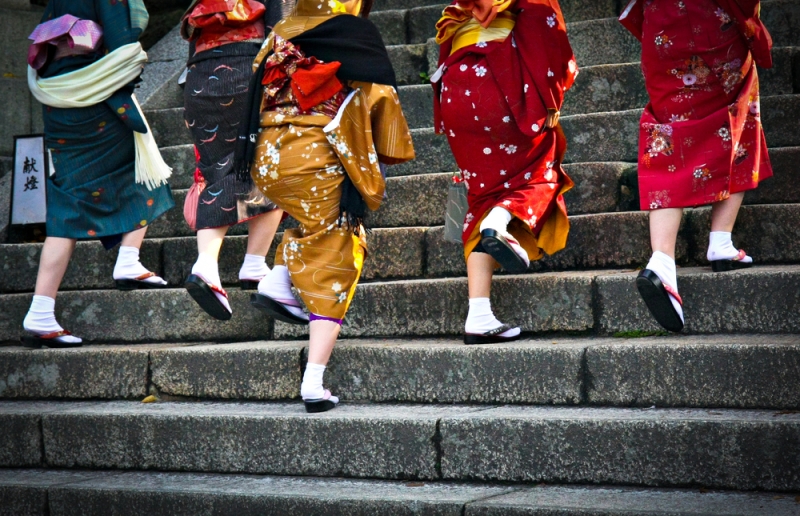
Our author spent two weeks in Japan. This, of course, is not enough to understand the country and its inhabitants, but it is quite enough to get acquainted with the unusual taboos of Japanese society. In this article, we give 14 tips that will help you avoid awkward situations during your trip.
In transport
Don’t jump in line
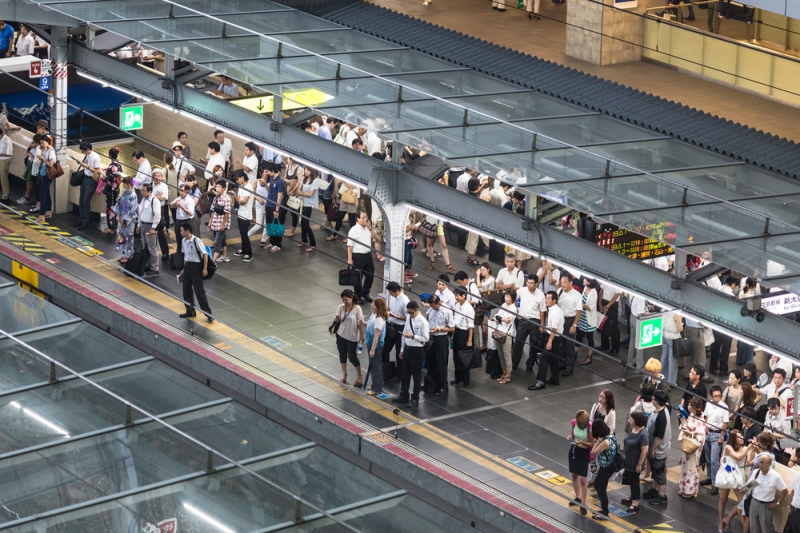
The Japanese love to line up in neat lines: in stores, at bus stops, and even on the subway. In the subway, special signs are painted on the platform so that all passengers can see where to stand. An attempt to crawl forward usually causes not so much aggression, as in our case, but bewilderment and irritable condescension.
Don’t eat on the go
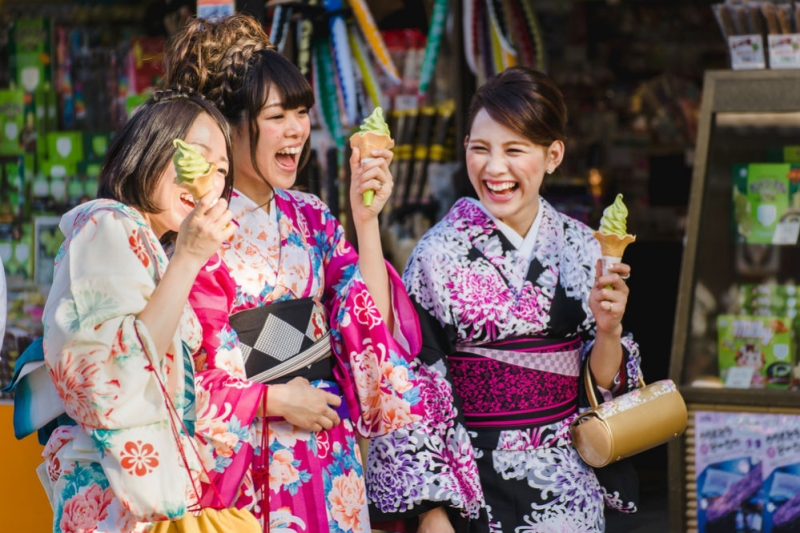
Let’s hasten to upset those who like to chew on the road. Snacking on the go or on public transport is considered sloppy and arrogant behavior. The Japanese try to avoid such situations. There are exceptions. For example, you can safely eat ice cream on the go. The unspoken ban loosens during the holidays, when street food stalls pop up everywhere. At such moments, the Japanese calmly eat and drink on the go, moving from one establishment to another.
Don’t give up your seat
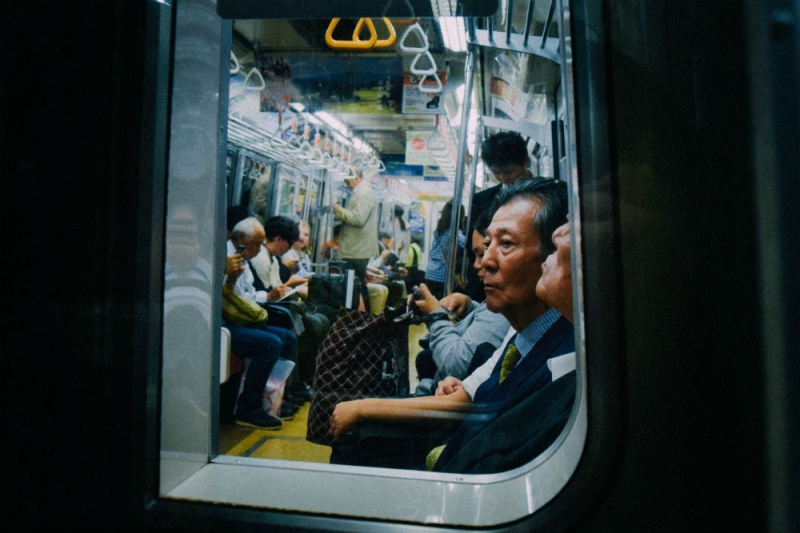
This may seem strange, but the Japanese do not, in principle, give up their seats on the subway, buses and trains. There are several reasons for this:
1. According to Japanese traditions, if someone has done you kindness, you must reciprocate the same. Such mutual scraping in some cases lasts for years. In the context of this, if you give up your seat to a Japanese person, he feels discomfort and the need to help you in return.
I had such an experience on my first day in Osaka. I gave way to a man with a child. He refused for a long time, after which he sat the child down, hesitated, found out our route and showed us when it was better to go out. 1:1. You can move on with your life.
2. According to some Japanese, when you give up your seat, you are drawing attention to the person’s weakness. And this is insulting. And it’s better not to do that.
3. In Japan, the idea has become established that when you buy a ticket, you automatically pay for your seat and are not obliged to give it up. Approximately the same approach as in Russia with minibuses and electric trains. There are special seats in each carriage for the elderly and disabled, so they do not require special attention.
Naturally, with our habits, it’s difficult to sit still when an eighty-year-old grandmother is standing over you at rush hour. In such cases, I stood up and pretended to be heading towards the door. It seems like he gave up his place and didn’t show it.
Don’t forget about left-hand traffic

This is not a taboo, but just useful advice. It’s difficult to immediately switch to a different way of thinking. In the first days, you constantly bump into passers-by, walk on bike paths, and look in the wrong direction when crossing the road. Once in Japan, it is better to take your time and let your brain get used to the changed environment.
Indoors
Don’t forget to take off your shoes
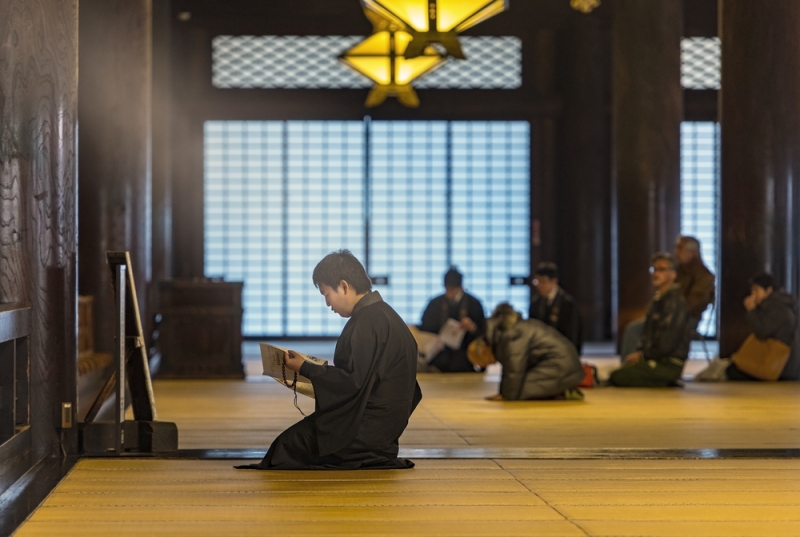
Tourists most often face the need to take off their shoes in three situations: when entering a house or apartment, while visiting a traditional restaurant, or when entering a temple.
The basis of this tradition dates back to ancient times, when Japanese houses had earthen floors. Wood and mats covered only a small area where people slept and ate. Due to frequent rains, the ground turned to mud, so before entering the living area, the Japanese took off their shoes and washed their feet. As centuries passed, Japanese houses changed, and the earthen floor took up less and less space. Now it has almost disappeared altogether, but the tradition remains. Curiously, the private house we rented in Kyoto still has this narrow strip of land outside the front door.
Don’t show off your tattoos
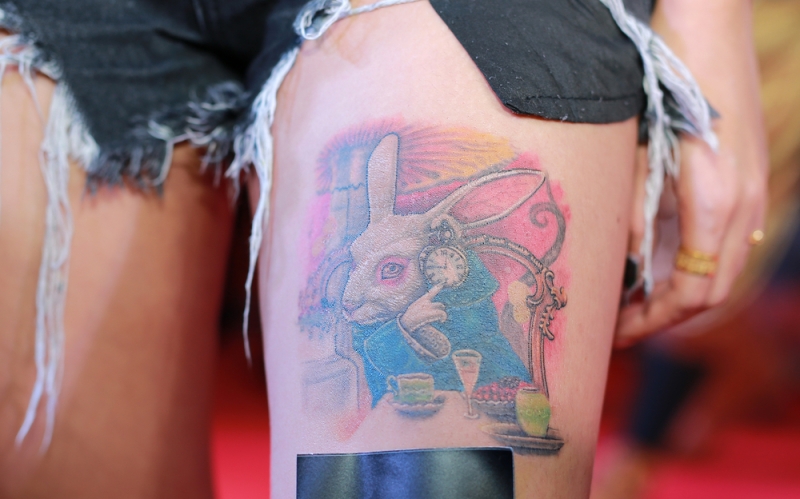
If you have a tattoo in a visible place, you may not be allowed into the bathhouse, sauna, or even the fitness center. As a compromise, establishment employees sometimes ask to cover the image with a plaster so as not to embarrass others. The fact is that tattoos are associated with the Yakuza clans – the Japanese mafia. Fear of the yakuza is still strong in Japanese society, although, according to Japanese police data, the number of mafiosi has been gradually falling over the past 12 years. In 2016, 39 thousand members of various clans were known.
Don’t throw away trash in bulk
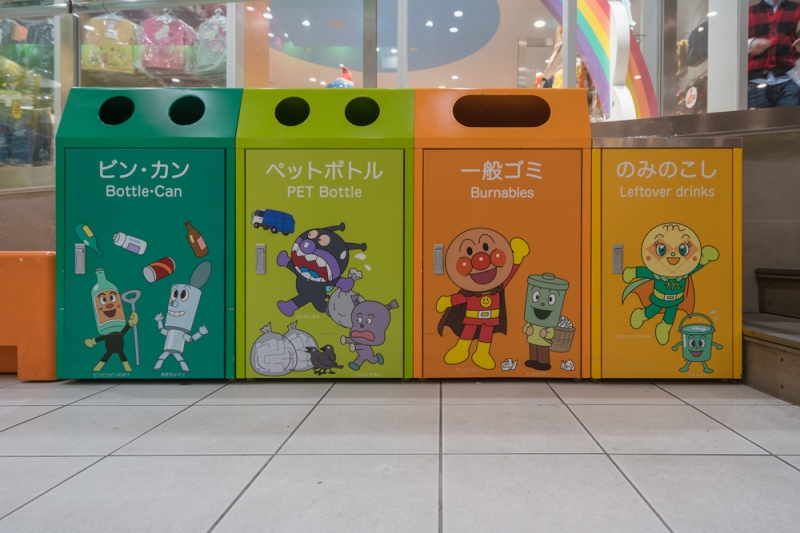
The Japanese are sensitive to collecting, sorting and recycling waste. Each bin has sections for different types of waste. Organics, paper, glass and plastic are usually separated. At home, throwing everything into a pile will also not work, since the garbage truck workers may not accept the package if they notice that there is a lot of stuff mixed in there. Garbage collection regulations are determined by the municipality, so they vary slightly from region to region.
The collected waste is processed or disposed of. The slag remaining after disposal is pressed and used in construction, including for the reclamation of artificial islands. The most famous of them is Odaiba in Tokyo.
During communication
Don’t touch other people

The Japanese respect their own and others’ personal space. Therefore, hugging, patting, or simply touching a stranger is unacceptable. You should even shake hands only after the Japanese himself has offered you this form of greeting. If this does not happen, it is better to bow.
Do not unwrap the gift immediately after giving
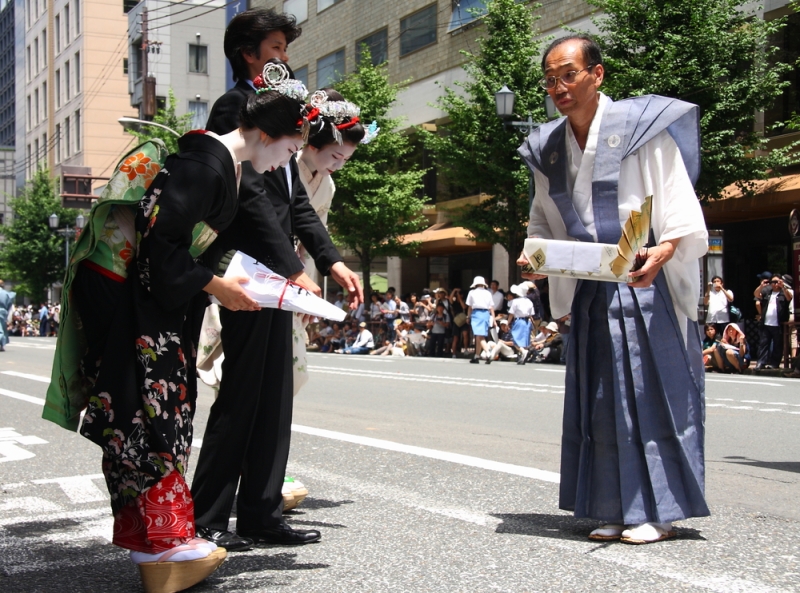
In Russia, ignoring a gift will seem rude. After all, a person wants to see the emotions that the owner of a new thing will experience. In Japan it’s the opposite. If you open the wrapper right away, you show your greed and tactlessness.
There is a version that this habit took root in Japan, since it is customary in the country to re-gift gifts. Sometimes several times. Therefore, such a delayed opening avoids additional awkwardness if the gift was already in the hands of the person to whom it was given. By the way, you need to accept gifts, just like business cards and money, with both hands. This shows openness and respect for the other person.
Don’t look into your eyes
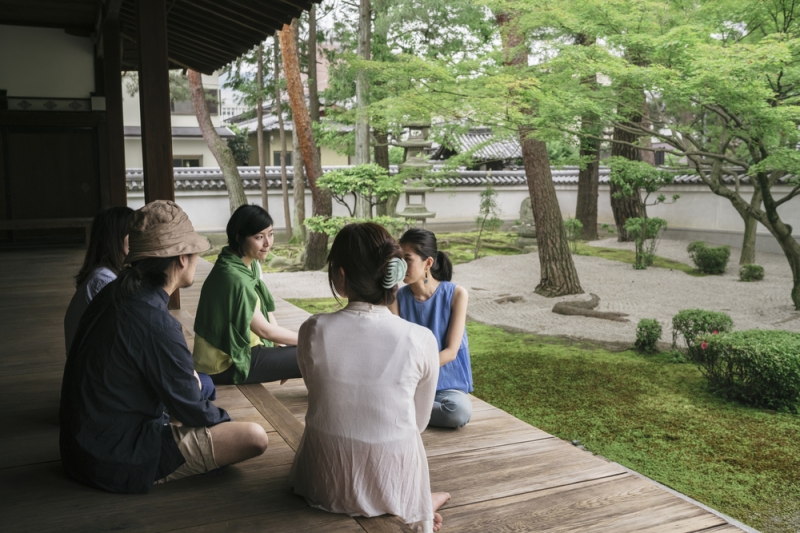
Direct gaze in Japanese culture is a sign of aggression or lying. This is due to medieval norms of behavior, according to which looking into the eyes of a person with a higher status was considered the height of arrogance. It is also not customary to consider and discuss other people. This is especially noticeable in the Tokyo subway, where people are silent, looking at the phone, the train window or at their feet, but not at their neighbors in the car.
Don’t blow your nose in public
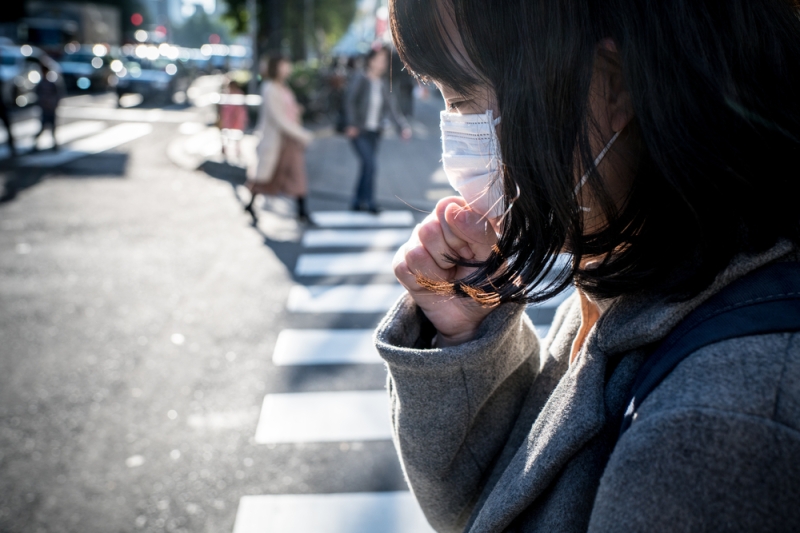
In Japan this is considered extremely indecent. They usually do this when they want to publicly insult a person. If the nose is stuffy, the Japanese sniffle, sniffle and sneeze, but do not blow their nose until they are alone.
In the cafe
Do not use chopsticks for other purposes
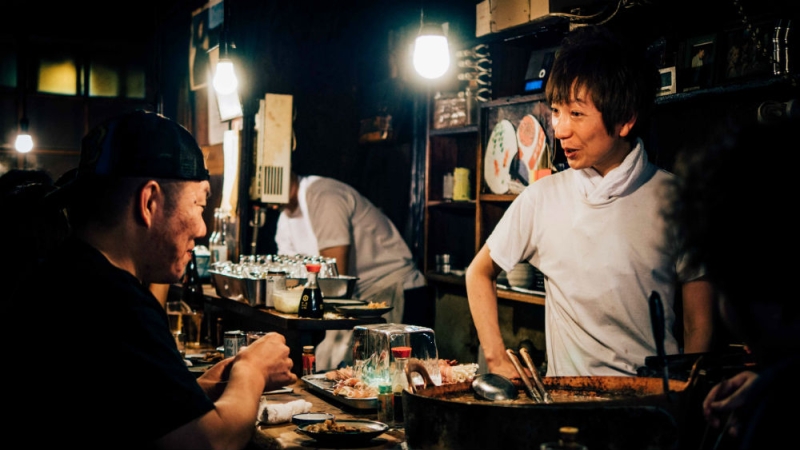
Chopsticks are not only cutlery, but also a part of Japanese culture. They are also used in funeral rituals. This is precisely what most of the unspoken prohibitions are connected with. Do not stick chopsticks into rice and put food on them. You cannot pass food to each other with chopsticks, this reminds of a special ritual after cremation. During it, the relatives of the deceased use sticks to transfer the bones of the dead person into an urn with ashes. This is the only situation in which two people’s chopsticks are allowed to touch the same object.
Don’t tip
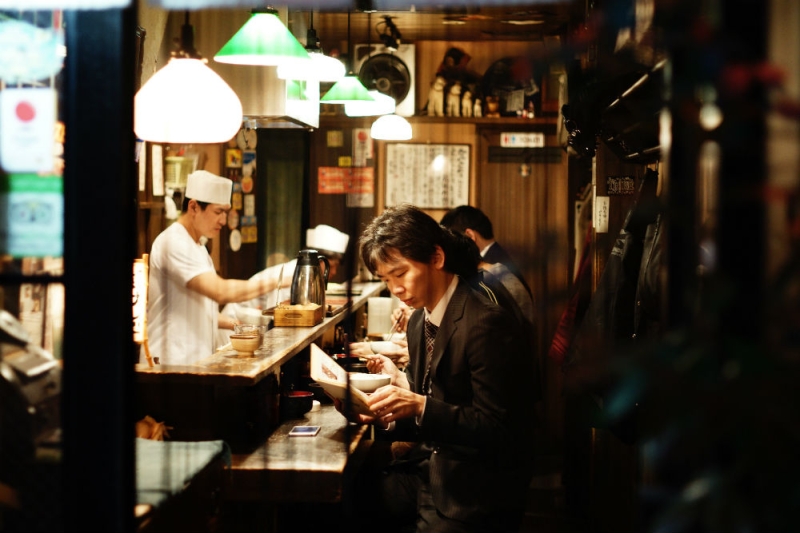
Money left over the check can be perceived in two ways. Either the waiter will decide that you forgot them and will try to return them to you, or the restaurant staff will decide that you did not like the service. Foreigners usually get away with such punctures, but it’s still better not to put the Japanese in front of a painful choice. Some bars have special jars or cups at the cash register where you can deposit change; in other cases, it’s better to hold onto the yen.
Don’t give money into your hands
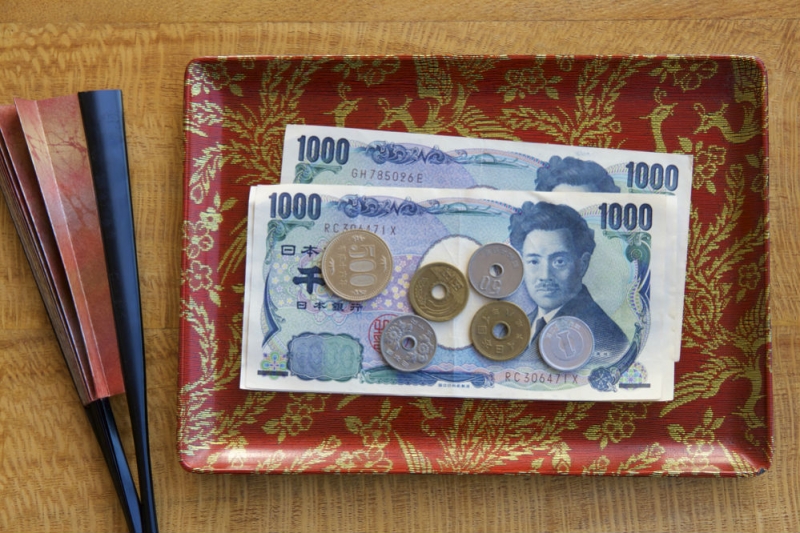
It is not customary to pass banknotes and coins from hand to hand. In Japanese supermarkets, like ours, there are special trays where you must put money. But the attitude towards them is different.
The first few days, out of habit, I tried to give the entire amount to the cashier, the result was different. Someone was embarrassed, but took it, someone moved the tray towards me, one cashier even took the money, put it in the tray and only then took it from there to the cash register. Apparently, this was his way of trying to teach me proper behavior in the store.
If there is a need to transfer money from hand to hand, it is usually put in an envelope.
A convenient way to book hotels online is on OneTwoTrip.

